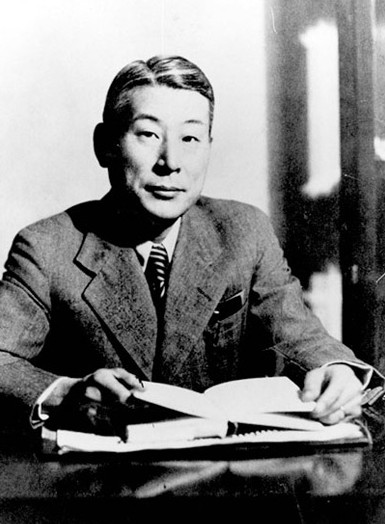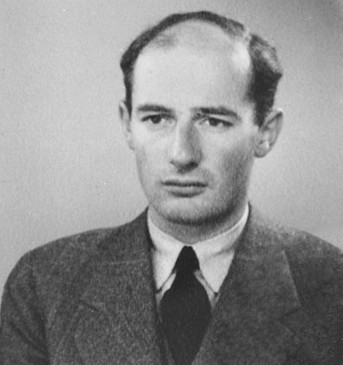The Holocaust
Chiune Sugihara and Raoul Wallenberg: The Diplomats Who Defied Orders to Save Thousands of Jews
Two heroes of World War II who risked everything to follow conscience over command and rescue Jews from Nazi terror
- Naama Green
- |Updated

Chiune (Sempo) Sugihara and Raoul Wallenberg were foreign diplomats in Europe during World War II. Both risked their lives — and defied their governments, to save thousands of Jews from Nazi extermination. Both paid a heavy personal price for their courage.
Chiune Sugihara — The Japanese Consul Who Risked Everything in Kovno
Chiune Sugihara, the Japanese consul stationed in Kovno, Lithuania, saved thousands of Jews by issuing transit visas through Japan, allowing them to escape the Nazi occupation.
During those days of issuing visas, Sugihara worked day and night without sleep, signing thousands of documents by hand. At times, he even stepped outside his office to calm the enormous crowd of desperate Jews waiting for him, assuring them softly, “I will give visas to everyone — no one will be left behind.” And indeed, he kept his word.
Among those saved were the students of the Mir Yeshiva, including great Torah scholars such as Rabbi Chaim Shmuelevitz and Rabbi Yechezkel Levenstein, as well as thousands of other Jewish men, women, and children.
When exhaustion overcame him, Sugihara would rest for a few hours and leave the official consulate seal with the Mir Yeshiva’s secretary, who continued stamping visas throughout the night without pause.
No one knows exactly how many lives Sugihara saved. Being a modest man, he never spoke much about it. But researchers estimate that he rescued at least 10,000 Jews, possibly as many as 15,000, before his consulate was shut down a month later.
“If I Had Not Obeyed God, I Would Have Disobeyed My Conscience”
Before beginning his rescue mission, Sugihara had urgently telegraphed Tokyo, requesting permission to issue visas to Jews. The Japanese Foreign Ministry strongly opposed the idea of allowing Jewish refugees into Japan. He asked again twice more — and was met each time with firm refusal and a warning that if he continued to “trouble Tokyo,” “severe measures” would be taken against him.
Sugihara understood perfectly what that meant for himself and for his family. Yet the sight of thousands of desperate men, women, and children waiting outside haunted him. His courage and humanity would not let him abandon them.
He decided to act against orders, even knowing the cost. When asked later how he had dared to defy his government so openly, Sugihara replied simply: “I may have disobeyed my government, but if I had not acted, I would have disobeyed God.”
 Chiune Sugihara
Chiune SugiharaThe Price of Heroism
After the war, Sugihara was captured by the Soviets and sent to a labor camp in Siberia, where he remained until 1947. When he returned to Japan, the Foreign Ministry dismissed him for his wartime “crime” of saving Jews.
He lost his career, his pension, and his social standing. Once a respected diplomat, he now made a meager living selling lightbulbs door-to-door in rural villages near Tokyo. Later, he found work as a Russian translator at Japan’s national broadcasting service. Even after reaching retirement age, he continued to work — because, by law, he was not entitled to a pension for the years he had served in the foreign ministry.
Raoul Wallenberg — The Swedish Envoy Who Vanished
Another hero diplomat was Raoul Wallenberg, the Swedish envoy in Budapest, whose fate remains one of the great mysteries of the 20th century.
Judge Moshe Bejski, chairman of Yad Vashem’s commission for the Righteous Among the Nations, once said: “Raoul Wallenberg was the greatest and most distinguished of all the Righteous Among the Nations.”
Wallenberg went far beyond the limits of his diplomatic role. He did everything possible to save Hungary’s Jews from the Nazis.
He issued “protective passports” that declared their bearers under Swedish protection — distributing them freely, even to Jews who had already been arrested or were awaiting deportation. His fearless interventions rescued hundreds, sometimes thousands, from the clutches of their captors, who were often intimidated by his commanding presence and official authority.
 Raoul Wallenberg
Raoul WallenbergThe Diplomat Who Chased a Train
When the Nazis began the death marches to the Austrian border, 17,000 Jews under Swedish protection were among those detained. Wallenberg did everything in his power to release as many as possible and bring them to safety.
In one dramatic episode, he learned that eleven Jews with Swedish passports had been seized by the Gestapo and put on a train bound for the camps. He raced to the station — but the train had already departed. Wallenberg chased the train in his car, caught up to it near the border, and demanded the release of the prisoners — and succeeded.
His fearlessness astonished his friends and infuriated his enemies — especially Adolf Eichmann, who considered him a personal nemesis. When the Red Army neared Budapest in December 1944, Eichmann reportedly gave the order: “Shoot that Jewish dog Wallenberg.”
A Hero Who Never Returned
Wallenberg’s fate remains tragic and unresolved. After the war, when he returned to meet Soviet forces, he was arrested by the Russians and taken to Lubyanka Prison in Moscow.
The Soviet government later claimed that he died there in 1947 of a heart attack, at just 34 years old — though no credible evidence was ever produced. To this day, his true fate remains unknown.

